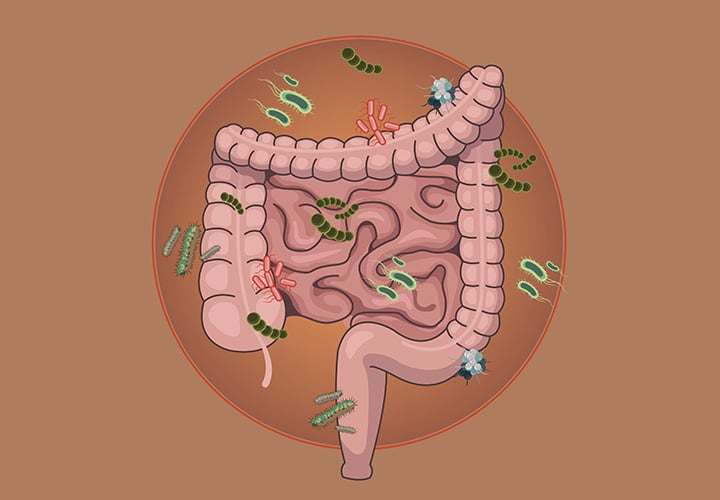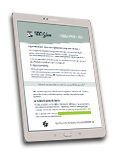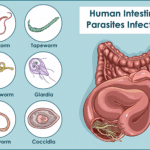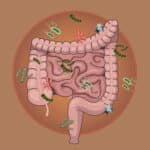What Is Gut Terrain — and Why It Matters for Parasite Health

Why parasites thrive when the gut is weak — and what to do about it.
If you’ve ever done a parasite protocol and didn’t feel any better — or maybe your symptoms came back within a few months — you’re not alone. For years, conventional and even functional medicine approaches have treated parasites like a one-time invader: identify, treat, eliminate. But when it comes to parasites (and even fungal or bacterial overgrowths), this “test and kill” strategy often fails.
Not because the protocol was wrong — but because the gut terrain wasn’t ready.
What Is Gut Terrain?
“Terrain” refers to the internal environment of your digestive system — the conditions that determine whether microbes like parasites, yeast, or bacteria take root and thrive… or get flushed out before they cause trouble.
It’s a concept rooted in foundational microbiology. Claude Bernard and Louis Pasteur famously debated whether microbes caused disease — or whether the host environment determined susceptibility. Pasteur ultimately conceded:
“The microbe is nothing. The terrain is everything.”
In functional medicine, we recognize the terrain as the key to long-term gut resilience.
Your gut terrain includes:
- Stomach acid – destroys incoming microbes before they reach the small intestine
- Bile flow – contains antimicrobial bile salts and supports detoxification
- Digestive enzymes – help break down food, reduce fermentable residue, and modulate immunity
- Mucosal lining – houses protective secretions and immune cells (IgA)
- Motility – moves waste and pathogens through and out of the system
- Microbiome balance – beneficial bacteria compete with pathogens for space and resources
- Gut-associated lymphoid tissue (GALT) – 70–80% of your immune system lives here
When terrain is strong, parasites often don’t stand a chance. But when it’s weak, even low-level exposures (contaminated food, pets, travel, etc.) can turn into chronic, stealth infections.
Why Parasites Thrive in Weak Terrain
Parasites are opportunists. They don’t need a catastrophic exposure to set up shop — just an environment that lets them stay under the radar. There are several reasons why this happens:
1. Low Stomach Acid
Stomach acid (HCl) is a critical first defense. It kills most microbes in food and water before they reach the intestines. But chronic stress, aging, acid-suppressing meds, and infections like H. pylori reduce acid levels.
Research shows that low acid increases susceptibility to parasites like Giardia lamblia and H. pylori itself (Lindenbaum, 1980; Martinsen et al., 2005).
2. Sluggish Bile Flow
Bile acids break down parasite membranes and support gut immunity. But gallbladder dysfunction, low-fat diets, estrogen dominance, and liver stagnation impair bile flow — leaving the gut more vulnerable.
Studies confirm that bile acids have direct antimicrobial effects and influence the composition of the gut microbiota (Dutta et al., 2013; Islam et al., 2011).
3. Thin or Inflamed Mucosal Barrier
The mucosal layer coats the gut lining and protects it from irritants and pathogens. It also houses immune sentinels like secretory IgA. When this barrier is damaged (from gluten, alcohol, antibiotics, processed food), opportunistic pathogens can more easily adhere and proliferate.
Leaky gut has been associated with increased colonization by protozoa, yeast, and inflammation-driven dysbiosis (Wells et al., 2017).
4. Slowed Motility + Constipation
When the bowels are sluggish, waste sits longer in the colon — allowing parasites to replicate and form biofilms, which shield them from herbs or medications.
Impaired motility has been linked to small intestinal overgrowths of both bacteria and fungi (Rao et al., 2014).
Terrain Dysfunction Creates a Vicious Cycle
Parasites don’t just take advantage of weak terrain — they actively make it worse. They deplete nutrients, hijack immune messaging, and alter the microbiome in their favor.
They can:
- Suppress IgA, reducing mucosal defense
- Increase inflammation, contributing to food sensitivities
- Release neurotoxins that affect mood, sleep, and cognition
- Burrow into tissues or biofilm to avoid detection
This is why many people experience cyclical or vague symptoms — bloating, fatigue, rashes, brain fog, cravings — that ebb and flow, especially around the full moon (when parasite reproduction cycles peak).
“Parasites are masters of immune modulation and host manipulation.”
— Maizels RM, J Biol (2003)
But My Stool Test Was Negative…
Stool tests are helpful — but they’re far from foolproof.
Even high-quality labs like GI-MAP, Doctor’s Data, or PCR-based panels have significant limitations:
- Parasites aren’t shed in every bowel movement
- They often live in tissue, not just in stool
- Biofilm and mucus layers can shield them from detection
- Immune-suppressed hosts may not show immune markers
- Tests provide a snapshot, but parasites exist in cycles
In a 2014 study by Rao et al., 26 out of 50 patients with unexplained GI symptoms tested positive for fungal or parasitic overgrowth — despite having negative prior workups (Rao et al., 2014). That’s a 52% prevalence — and a clear case of false reassurance.
This is why many practitioners now rely on clinical patterns, symptom history, and terrain assessment, not just testing.
Signs Your Gut Terrain May Be Compromised
You don’t need a lab result to know your gut needs support. Red flags include:
- Bloating or discomfort after protein or fat
- Strong sugar or carb cravings
- Constipation or slow transit
- Reactivity to herbs or supplements
- Cyclical rashes, mood swings, or fatigue
- Food sensitivities that keep increasing
- Feeling “toxic” despite clean labs
- History of travel, pets, mold, or antibiotics
If these sound familiar, your terrain may be vulnerable — and that’s where to begin.
You don’t need to jump into a full anti-parasite protocol to feel better. In fact, that can often make things worse if the terrain isn’t ready. A better approach is to build the foundation first, so your body can do the clearing work naturally — or tolerate more targeted interventions when needed.
Final Thoughts
If you’ve already treated for parasites — or your test says everything is fine — but you still feel inflamed, bloated, reactive, or exhausted, it may not be about needing a stronger protocol.
It may be about making your gut stronger.
Gut terrain is the ecosystem that makes or breaks your ability to recover. It determines how you tolerate treatment, how resilient you feel between protocols, and whether your symptoms truly resolve or keep looping back.
If your terrain is depleted, even the best supplements won’t hold. But when your terrain is supported, your body begins to self-correct. That’s when healing actually sticks.
- Lindenbaum J. Malabsorption and nutritional deficiencies associated with Giardia infection. Ann Intern Med. 1980.
- Martinsen TC, et al. The role of pepsin and other proteolytic enzymes in the pathogenesis of H. pylori infection. Scand J Gastroenterol. 2005.
- Dutta AK, et al. Bile acids: Role in the human intestine. Indian J Med Res. 2013.
- Islam KB, et al. Bile acid is a host factor that regulates the composition of the cecal microbiota in rats. Gastroenterology. 2011.
- Wells JM, et al. Homeostasis of the gut barrier and potential biomarkers. Am J Physiol Gastrointest Liver Physiol. 2017.
- Rao SSC, et al. Small intestinal fungal overgrowth (SIFO) in gastrointestinal disorders. Dig Dis Sci. 2014.
- Marcogliese DJ. Parasites: small players with crucial roles in the ecological theater. Ecohealth. 2005.
- Maizels RM. Parasite immunomodulation and polymorphisms of the immune system. J Biol. 2003.
Enjoying this content? Sign up for updates... It's FREE!

















